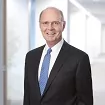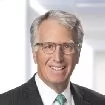Tomorrow at 10:00 am, the Senate Banking Committee will meet to conduct a hearing on the nominations of Gary Gensler to be chairman of the Securities and Exchange Commission (SEC) and Rohit Chopra to be director of the Bureau of Consumer Financial Protection (CFPB). Both are strong advocates of the Biden administration's policy agenda and have longstanding relationships with progressive Democrats. The hearing is certain to underscore the political and philosophical divide between Democrats and Republicans, for example, over what role social issues and policies should have in SEC and CFPB deliberations and actions.
Mr. Gensler is no stranger to Capitol Hill or the Senate Banking Committee. His most recent public service was as chairman of the US Commodity Futures Trading Commission (CFTC) in the aftermath of the 2008 financial crisis and during the adoption and implementation of the 2010 Dodd-Frank Wall Street Reform and Consumer Protection Act (Dodd-Frank Act). Mr. Gensler also has served in the US Treasury Department and the committee that will consider his nomination and, if confirmed, exercise legislative oversight of his chairmanship at the SEC.
During the Obama administration, Mr. Gensler elevated the profile of the CFTC as a global financial regulatory authority with its expanded jurisdiction over the swaps and derivatives markets. He aggressively pursued derivatives market reform and successfully brought a number of record-setting enforcement cases against global financial institutions. Mr. Gensler defended his agenda by focusing on how capital markets serve the "real economy" - i.e., non-financial companies - and considering how global markets pose a systemic risk to the American financial system.
If prior appearances before Congress are any indication, Mr. Gensler's confirmation hearing will provide Senators, regulators, and market participants with a clear sense of his priorities, goals, and policy positions. We will be watching carefully to see what the confirmation hearing reveals about the following important topics: virtual currency regulation and enforcement, environmental, social and governance (ESG) issues, fiduciary duty rules, and fixed income market structure and regulation.
Virtual Currencies
Mr. Gensler comes to the role more familiar with virtual currencies than any of his predecessors, having served as professor of economics and management at MIT and co-director of MIT's Fintech program, as well as senior advisor to the MIT Media Lab Digital Currency Initiative, conducting research and teaching classes on blockchain technology, digital currencies, financial technology, and public policy. As a result, we can expect him to be very knowledgeable on blockchain and crypto-asset issues, and as a result, to potentially face questioning on a variety of issues.
On regulatory matters, we likely can expect to hear Gensler asked about his views on the SEC's prospects for the approval of a Bitcoin ETF, as well as on Coinbase's recently-filed S-1 for a direct offering on the NASDAQ exchange. On the enforcement side, Mr. Gensler is on record as believing that Ripple Labs' XRP token is a security; with the SEC having filed a complaint against Ripple Labs for securities violations concerning XRP's status as a security, Mr. Gensler may be asked if he still agrees with that position. More broadly, Mr. Gensler is on record stating his belief that forthcoming asset-backed token Diem (formerly Libra) is a security; Gensler may be asked again for his opinion on that issue and the question of asset-backed "stablecoins" more broadly.
Looking ahead further, significant questions exist as to the SEC's future outlook on crypto-assets as a class, and whether the SEC will continue to engage in enforcement actions against individual tokens or engage in a broader notice-and-comment rulemaking through its Division of Corporation Finance to set brighter-line rules for companies and other entities designing cryptographic tokens and assets. The recent boom in interest in various decentralized finance applications highlights the need for a proactive regulatory approach from the SEC that is clear and understandable while not stifling innovation.
The SEC is not the only regulatory agency that is active in the crypto-asset space. Reaching some level of harmonization across the SEC, the CFTC, the Treasury agencies involved in crypto-assets (including the Financial Crimes Enforcement Network, the Office of Foreign Assets Control, Office of the Comptroller of the Currency, the Internal Revenue Service, and other entities), as well as other federal and state regulators will be important to facilitate clarity for innovators. International regulatory harmonization is also critical, given that the SEC's regulatory approach to crypto-assets is beginning to deviate relatively significantly from financial centers such as Switzerland, the United Kingdom, the European Union, and Singapore, especially in light of aggressive experimentation with central bank digital currencies by the People's Bank of China and as well as central bankers across North America, Europe, and Asia. Mr. Gensler can expect to face questions about how to best encourage American competitiveness while keeping pace with regulators around the world.
Environmental, Social and Governance Issues
Climate Change
Climate change policy is a core pillar of the Biden administration's policy agenda. Treasury Secretary Janet Yellen, who chairs the Financial Stability Oversight Council (on which the SEC has a voting seat), told G20 leaders last week that Treasury will co-chair the relaunched G20 sustainable finance group, and during her confirmation process, Secretary Yellen committed to establishing a Treasury Department climate "hub" to examine systemic risks arising from climate change.
In the last few weeks, the SEC has already begun to take similar steps. On February 1, Acting Chair Allison Herren Lee appointed a senior policy advisor for climate and ESG. Last week, Acting Chair Lee announced that the Commission's Division of Corporation Finance would "enhance its focus on climate-related disclosure in public company filings." Acting Chair Lee's announcement builds on the Commission's 2010 guidance regarding existing public company disclosure requirements as they apply to climate change matters.
Diversity & Inclusion
While there has been some movement at the state level, federal regulators have not adopted regulations imposing diversity criteria for boards of directors. Under Mr. Gensler's leadership, the SEC will have to address this issue. In December 2020, Nasdaq proposed to amend its rules to require that Nasdaq-listed companies have two diverse directors. That proposal's public comment period closed on January 19, 2021, and the Commission extended the period for Commission action until March 11, 2021. At that point, the SEC will either approve or disapprove, or institute proceedings to determine whether to disapprove, the proposed rule change.
Mr. Gensler is familiar with federal agencies pursuing diversity requirements for registered entities. In 2012, the CFTC adopted Dodd-Frank Act rules requiring that boards of directors of designated contract markets, or futures exchanges, if publicly traded, "endeavor to recruit individuals to serve on the board of directors and the other decision-making bodies . . . from among a broad and culturally diverse pool of qualified candidates."
If confirmed, Mr. Gensler also will face internal pressure on these issues. Acting Chair Lee and Commissioner Caroline Crenshaw have both supported diversity initiatives, including disclosure requirements.
Fiduciary Duty
In the 2018 report of the bi-partisan Maryland Financial Consumer Protection Commission (Maryland Commission), chaired by then-MIT Sloan School of Management Professor Gensler, the Maryland Commission recommended the Maryland General Assembly pass legislation providing that broker-dealers and other investment advisers be held to a heightened fiduciary duty to act in the best interest of the customer without regard to the financial or other interest of the person or firm providing the advice. Ultimately, this would broaden the fiduciary duty standard in Maryland to broker-dealers and insurance producers.
A few months after the Maryland Commission released its report, the SEC finalized Regulation Best Interest (Reg BI) that maintained two distinct standards for broker-dealers and investment advisers. The rule required broker-dealers to determine whether an investment is in the best interest of their clients and to disclose related conflicts of interest. While Reg BI was a meaningful departure from the prior 'suitability' standard, it did not meet the higher fiduciary standard of care required of registered investment advisers.
While the two standards put forth by Reg BI were endorsed by the securities industry, they fell short of the recommendations of investor advocates and the Maryland Commission. Senators may re-visit Mr. Gensler's past recommendations and whether he expresses any views as to whether he will reopen a discussion on a broker-dealer's duty to its customers' best interests.
Fixed Income Market Structure and Regulatory Reforms
Mr. Gensler has a deep background in the financial markets, both in the private sector at Goldman Sachs and in the federal government. During the Clinton administration, he was undersecretary for domestic finance, which includes, among other things, overseeing financial markets and the US Treasury market, the largest, most liquid fixed income market in the world. As CFTC chairman, Mr. Gensler was deeply involved in the Dodd-Frank Act legislative drafting process, pushing for central clearing of derivatives, increased pre-trade price transparency and post-trade reporting, as well as electronic trading for the over the counter derivative markets. During his tenure, he successfully, and remarkably quickly, promulgated the CFTC's implementing regulations consistent with those statutory objectives.
If confirmed, we would expect Mr. Gensler to pursue similar goals at the SEC relating to the markets under its jurisdiction. In November 2017, the SEC chartered the Fixed Income Market Structure Advisory Committee (FIMSAC). The FIMSAC has a diverse membership from the fixed income broker dealer community, investors, issuers, technology companies, academics, and other participants. Since its inception, the FIMSAC has issued numerous recommendations relating to the corporate and municipal bond markets, bond funds, and exchange traded funds (ETFs) on issues ranging from pre and post trade price transparency, timeliness of financial disclosures, modernization of the Investment Company Act Rule 17a-7, electronic trading, conflicts of interest in credit ratings, and other issues. We would expect Mr. Gensler to use the FIMSAC to support the implementation of his policy agenda for fixed income markets and regulatory reforms. Perhaps not entirely unrelated, Federal Reserve Board Governor Lael Brainard gave a speech today calling for reforms to the market for US Treasury securities, to enhance transparency and resilience of that critically important market.
Looking Forward
Tomorrow's hearing should provide a clear indication of the partisan support for Mr. Gensler's nomination. We expect he will, ultimately, receive the necessary support for his Senate confirmation and installation as the SEC chairman. The pace of activity during Mr. Gensler's prior government service indicates he will move quickly to begin to implement his agenda. We encourage anyone with an interest in matters before the SEC to be on alert for new initiatives and rulemakings should Mr. Gensler be confirmed.
Originally published March 1, 2021
The content of this article is intended to provide a general guide to the subject matter. Specialist advice should be sought about your specific circumstances.








